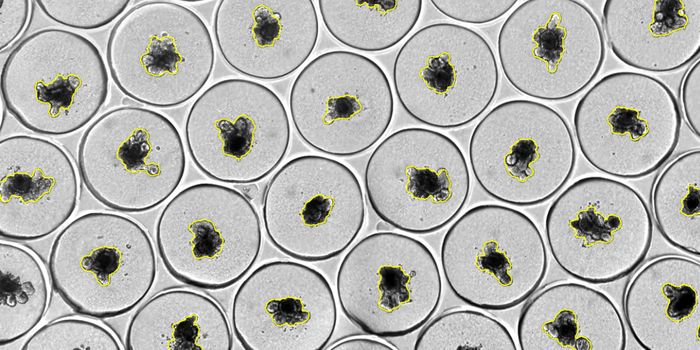Lung cancer is the second most common form of cancer in both men and women. With such a high incidence rate and an equally alarming mortality rate, research in early detection could make a big difference in patients’ outcomes. To that end, researchers at University of Colorado have
found a new biomarker, which could be used in diagnostics and detection of lung cancer.
Lung cancer is divided into three types: Non-small cell lung cancer, which makes up about 85 percent of cases; small cell lung cancer, which makes up 10-15 percent and has a tendency to metastasize; and, lung carcinoid tumor, which is most rare and slow-growing. Most notably, the risk of developing lung cancer is highly influenced by smoking, with 90 percent of cases due to tobacco use.
What contributes to lung cancer’s deadliness is its ability to go undetected. In the early stages, most patients are asymptomatic, showing little to no signs of the cancer’s presence. Only after the disease has advanced do patients report symptoms, such as difficulty breathing, blood in mucus, and other respiratory abnormalities. As such, lung cancer is the leading cause of cancer-related death in the US.
Two years ago, researchers from the University of Colorado (UC) Cancer Center identified a growth factor protein, known as epiregulin (Ereg) that was linked to two mouse models of lung cancer. What they didn’t know at the time was the extent to which Ereg could be causative in the disease. Their current studies answer this question as well as point to Ereg as a potential new therapeutic target.
Led by Rana Brooks, the team used mouse models of lung cancer and tested the effects of Ereg deletion in these mice. They found mice lacking the growth factor Ereg showed reduced inflammation and tumor growth, as compared to normal mice. "Basically, we saw that mice without Ereg developed fewer tumors," said Alison Bauer, Assistant Professor at the UC Cancer Center, and first study author.
As the overall tumor burden decreased, the researchers also observed that treatment of recombinant Ereg increased wound healing in both human and mouse lung epithelial cell lines. This piece of evidence suggests Ereg influences abnormal cell proliferation. As such, it can be leveraged to be a powerful early cancer biomarker and target for new therapies.
"This is in line with what you would expect from a functional growth factor," said Bauer. "It appears as if Ereg increases cell proliferation, with increased levels of Ereg in cancer cells promoting the growth and proliferation of tumors."
Growth factors have previously been implicated in many types of cancers. Most notably, the epidermal growth factor (EGF) and its receptors (EGFR) were linked to lung cancer, and can be countered with anti-EGFR therapies such as erlotinib and gefitinib. Ereg is an EGF-like growth factor but has largely been under-studied. Finding out the precise mechanism of how it influences inflammation in lung cancer will be the next focus for the team’s work.
"This really is new," she says. "And while that presents a challenge in the lack of science surrounding Ereg, it also presents an exciting opportunity to push forward with a promising biomarker that hasn't been described in this context."
Additional source:
EurekAlert!









